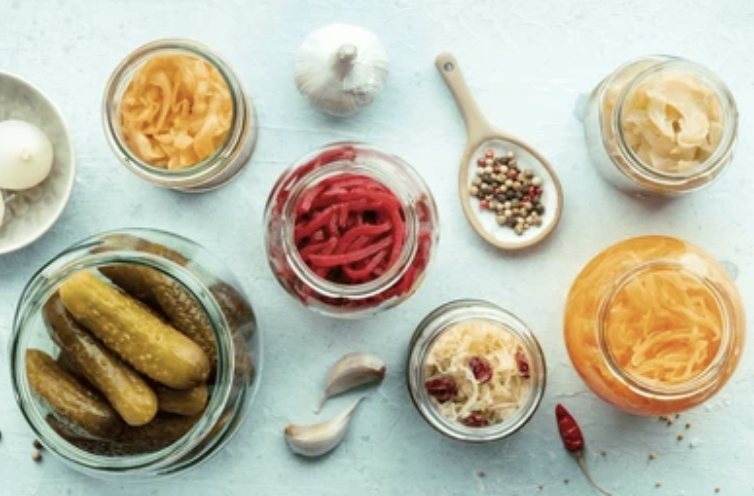 It’s important to have a healthy gut that is teeming with good bacteria, and this can be done through a diet that includes a lot of plants and healthy fiber. A healthy gut is balanced and has a big impact on your physical and mental health.
It’s important to have a healthy gut that is teeming with good bacteria, and this can be done through a diet that includes a lot of plants and healthy fiber. A healthy gut is balanced and has a big impact on your physical and mental health.
Probiotics are live bacteria and yeasts that are good for your health, especially your digestive system. They’re often called often called “good” or “helpful” bacteria because they help keep your gut healthy. What they do is line your digestive tract and support your body’s ability to absorb nutrients and fight infection.
The good news is that probiotics can be increased through diet and supplements. Some foods are probiotic-rich, while others help to feed the probiotics in your gut.
There are foods you can find in a grocery store, and of course, online, that are probiotic-rich. Some that you can include on your next grocery list are:
- Yogurt and Kefir. Find the plant-based versions like soy yogurt, coconut yogurt and coconut kefir to get the benefits without the problems often associated with dairy. Kefir is a cultured, fermented milk drink, and is similar to yogurt but it is a drink, with a tart, sour taste, and slight fizz. It can be found in the yogurt section of many grocery stores.
- Sauerkraut and Vegetable Ferments. Kimchi is a staple in Korean cuisine. It’s a side dish made from salted and fermented vegetables using napa cabbage and Korean radishes.
- Water Kefir and Kombucha. Both can be purchased in bottles.
- Miso. It’s the fermented beans and rice that make miso magic as a healthy and delicious condiment and adding a tablespoon to some hot water makes an excellent, quick, probiotic-rich soup.
While the probiotics in food form are best for your gut health, they are available in supplement form. Quality supplements can be pricey, but if you want to take them, they are available. There are five things you need to consider when buying a probiotic supplement:
- High CFU count — Purchase a probiotic brand that has a higher number of probiotics, from 15 billion to 100 billion.
- Strain diversity — Search for a probiotic supplement that has 10–30 different strains.
- Survivability — Look for strains like bacillus coagulans, Saccharomyces boulardii, Bacillus subtilis, Lactobacillus rhamnosus, and other cultures or formulas that ensure probiotics make it to the gut and are able to colonize.
- Research — Do your homework and look for brands that have strains that support your specific needs.
It’s important that you know the following about probiotic supplements:
- Stability: Probiotics need to be kept cold in order to preserve their potency. This applies to their production, transport, storage, and sales.
- Date: The fresher the better – remember, we’re talking about living organisms.
- Living vs. dead: “Live and active cultures” is a better bet than “made with active cultures.”
- Potency: Most probiotic products don’t list the amount of bacteria their products contain. Health benefits can occur with 50 million CFUs for certain conditions and may take as many as 1 trillion CFU for others. A good rule is “The higher the number the better.”
Now you know what probiotics are, that they are beneficial and support good gut health and that you can increase them in your gut through diet and supplements.




